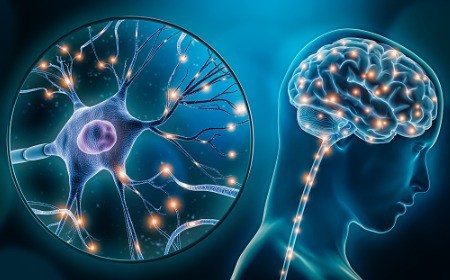Video Transcript:
Today’s question comes from one of our viewers who wrote in saying this, “I am older and I have osteoporosis. I have 1200 milligrams of calcium that I take at night. When should I take Mag 7?” (The Magnesium 7 that we have here at Organixx.) They also write, “I’ve been told too much magnesium is contraindicated to take with calcium.”
So, this is a great question. And I first want to clarify that calcium and magnesium are very powerful when taken together.
Understanding Calcification of the Cardiovascular System
Particularly, calcium that is not matched with magnesium can actually be harmful. So, I’m not quite clear on who maybe highlighted that they shouldn’t be taken together or there’s contraindications in taking calcium with magnesium. But the reality is that if you do not have a calcium that accompanies, or you take an additional supplement like Magnesium 7, what’s happening is you are just delivering calcium into your body. And if you are in a deficient state, which about 95-98% of us are deficient in magnesium, you now have no blocking mechanism for calcium in its delivery and transport into the vascular channel.
So, you can actually be causing more calcification of your cardiovascular system. Meaning that the calcium, when it enters, because it’s not blocked by magnesium. Magnesium is like the bodyguard. If the nightclub is your vascular channel, magnesium is the blocker, the night guard, and it makes sure that calcium is articulated in the right place, the right location, (i.e., bone and teeth). And when that doesn’t occur, calcium can get into your vascular channel, and implant along the walls of your vascular system.
So, meaning the walls of your veins, your arteries, and even sometimes in your heart. So that can be problematic when we’re looking at an exorbitant amount of calcium, 1200 milligrams, I’m not quite clear on what type or form of calcium you’re taking. That’s a lot. And because it’s unchecked, meaning we don’t have the balancer blocking it from being articulated into the vascular channel, you’d want to take magnesium with that dose. And because we’re looking at a high dose of calcium, I would probably do two or three doses of Magnesium 7. And again, it depends on the form of calcium. Some calciums are going to be more caustic to the vascular channel than others.
Plant-Based Calcium Is Best
So, always read your labels and you want to try and go as plant based as you can with calcium. There’s a likelihood of it being absorbed properly and articulated because a lot of times plant-based calciums will have a natural accompaniment of magnesium. But Magnesium 7, here at Organixx, is powerful at minimizing any type of further-down-the-road risk of arterial sclerosis, which is the leading cause of heart disease, heart attacks, and stroke. And it all comes back to the fact that we are overloading our bodies with calcium and we’re in a deficient state of magnesium and it’s not matched.
So, I hope that’s helpful. Just know magnesium is an absolutely essential mineral and it is necessary in over 600 different body reactions. And because of that, we need to get that into your body. And this is definitely one where you can microdose – take magnesium in the morning, take it in the evening. And that helps keep your digestive process flowing and helps to minimize any calcium from building up in places where it does not need to be, like your arteries and your veins. So, I hope that’s helpful. Let us know if you have any more questions and we appreciate you for being a valued customer here at Organixx. Have a great day.
Magnesium deficiency is linked to stress, diabetes, heart disease, osteoporosis, chronic fatigue syndrome, depression, anxiety, trouble sleeping, sore muscles, migraines, and many more debilitating health conditions.
If your body needs magnesium, you want the most beneficial kind your body can actually absorb. Organixx Magnesium 7 gives you seven (7) of the very best, most bioavailable types of elemental magnesium available.

Quick… what do stress, diabetes, heart disease, osteoporosis, chronic fatigue syndrome, trouble sleeping, depression, and anxiety all have in common? If you answered, “conditions or diseases caused by magnesium deficiency,” you would be correct. And these seven health problems are just the tip of the iceberg when it comes to the importance of consuming enough magnesium. Today we’re bringing you up to speed on magnesium deficiency causes, how to tell if you are magnesium deficient, and the best testing methods.
What Is Magnesium and Why Is It So Important?
Magnesium is an essential micronutrient for life and the 4th most abundant mineral in the human body. Within your cells, it’s the second-most abundant mineral after potassium and both are vital for a wide range of biochemical functions.

A 70kg (154 lb) adult has around 24 grams of magnesium (the same weight as a AA battery) in their body. A little more than half is found in bones, with the rest present in soft tissues. Less than 1% of the body’s total magnesium is present in the blood serum (the liquid component of blood) and in red blood cells [1,2], which makes accurate testing for magnesium deficiency challenging (more on that later).
Magnesium is required by your body to carry out hundreds of cellular processes [3]. Some of the most important include:
- Magnesium is an essential cofactor in at least 300 enzymatic reactions [4] – including those that maintain a steady heartbeat, blood pressure, blood sugar levels, and lipid peroxidation within normal levels [5]. (Lipid peroxidation is a process in which free radicals “steal” electrons from the fatty membranes that surround and protect our cells, leading to structural damage of cell walls.) Magnesium deficiency has been associated with a higher risk of hypertension, cardiovascular disease, stroke, and sudden cardiac death.
- It plays a key role in the metabolism of other important minerals such as calcium and potassium, and in the activation of vitamin D.
- Magnesium stabilizes enzymes, for instance, those that make adenosine triphosphate (ATP). Best known for its role in cellular energy production, ATP is required by your body to make fat, proteins, and nucleic acids such as DNA and RNA. It is also needed for muscle contraction.
- Magnesium acts as an essential cofactor for many enzymes that are essential for brain and nervous system function and health [6].

- Magnesium assists in maintaining strong bones [7]. Tight control of magnesium levels has been shown to be crucial for bone health, with both low and high magnesium having harmful effects [8]. Magnesium deficiency is known to contribute to osteoporosis.
- Magnesium is directly responsible for glutathione production and regeneration. Glutathione is known as the “Life-Extending Master Antioxidant” [9] and is an innate antioxidant present in nearly all living cells. It exerts “major effects on health at the molecular, cellular and organ levels.” Glutathione cannot be made without magnesium.
Magnesium also increases the activity of another important enzyme which enhances glutathione’s ability to neutralize free radicals. Free radicals damage cellular structures and contribute to disease formation – including those related to aging. - Magnesium enhances the activity of two other important innate antioxidants: catalase and superoxide dismutase (SOD). Catalase protects cells from oxidative damage while SOD is an enzyme that helps break down potentially harmful oxygen molecules in cells, thereby helping to prevent tissue damage.
What Causes Magnesium Deficiency? 10 Key Reasons Your Body Might Be Low in Magnesium
There can be many reasons for magnesium deficiency. Unless you’re growing your own foods in enriched soil and eating an impeccable diet, chances are your magnesium levels are being negatively impacted by one or more of these common causes:
#1. Most Americans simply don’t eat enough leafy greens and other magnesium-containing foods. Based on data from the National Health and Nutrition Examination Survey (NHANES), an estimated 79% of US adults do not consume the recommended daily allowance (RDA) for magnesium [10, 11].
#2. Even if you do eat plenty of magnesium-rich foods, modern agricultural practices have created soil that is deficient in minerals. If a mineral isn’t present in the ground, the plants that grow in that soil can’t uptake the mineral and it won’t be present in your food [12].
#3. Love your sweets? You’re not alone. Western diets contain an abundance of sugar, which requires more magnesium in order to be processed by the body.

#4. Processed and refined foods are another culprit as they have a much lower magnesium content than their unrefined counterparts. For example, it’s estimated that less than 20% of magnesium originally present in whole wheat remains in refined flour.
#5. Alcohol and consumption of green coffee lead to more magnesium excretion.
#6. Boiling and consumption of de-mineralized soft water eliminate another source of magnesium from the diet.
#7. As you age, your body becomes less efficient at absorbing the magnesium from your food in general. Even under normal (ideal) circumstances, only about 24–76% of the total dietary magnesium consumed is absorbed by the gut, while the rest is eliminated [13].
#8. For some people, certain conditions also reduce or impair magnesium absorption. For example, leaky gut (intestinal permeability) and certain medications that interfere with absorption.
#9. Health conditions that cause chronic diarrhea can also lead to excessive magnesium elimination from the body [14].
#10. Increased magnesium elimination leading to deficiency is sometimes seen in medical conditions such as diabetes, kidney disorders, hypercalcemia, and hyperthyroidism.
An Important Note About Hypomagnesemia (Low Magnesium in the Blood) in ICU Patients

Magnesium deficiency is typically seen in patients with malignant tumors, cirrhosis, or cerebrovascular disease [15]. In general, patients in intensive care units (ICUs) tend to have lower than normal magnesium levels.
This is extremely serious as postoperative patients in the ICU with severe hypomagnesemia (extremely low serum magnesium levels) were three times as likely to die than patients with normal levels [16].
How to Tell If You Are Magnesium Deficient
How do you know if you have a magnesium deficiency? Unfortunately, it’s not easy to diagnose, because many of its initial symptoms could also be symptomatic of other health issues. Typical magnesium deficiency symptoms include:
- low energy / fatigue
- weakness
- insomnia
- muscle cramps
- loss of appetite
- nausea
Then there is the wide array of diseases and health conditions that are often improved or eliminated by correcting a magnesium deficiency.
Chronic Fatigue Syndrome, Sudden Death, Infections & Migraines Linked to Low Magnesium
Chronic fatigue syndrome, characterized by flu-like symptoms and months or even years of lethargy, along with mood alterations, has been linked with low magnesium levels [17].
Sudden deaths in athletes may also be due to magnesium deficiency. Magnesium deficiency is also thought to increase the risk of susceptibility to infections and migraines [18].
Magnesium Deficiency and Stress: A Vicious Cycle
Stress is defined as a complex biochemical, physiological, and psychological response of our body, triggered by an external event that is interpreted by our brain as being harmful to us. Magnesium levels have been closely linked to stress levels [19].

For instance, magnesium has been shown to affect a number of neurotransmitter systems and hormones that coordinate our body’s responses to stress. [Note: Neurotransmitters are chemical messengers in our nervous system that transmit signals across a physical gap between nerve cells].
Low magnesium levels have been linked to many typical symptoms of stress such as:
- photosensitive headaches
- fibromyalgia
- chronic fatigue syndrome
- acoustic stress
- cold stress [20]
Acute stress has been shown to lead to more magnesium in the blood and more excretion via urine. This shift of magnesium from red blood cells into blood and eventually out of the body is initially helpful, reducing the harmful effects of stress. However, chronic, ongoing stress and the ensuing continuous magnesium depletion is harmful to your health [21].
In other words, stress of any kind, whether physical or emotional, increases your body’s need for magnesium. The greater the levels of stress you’re exposed to, the greater the loss of magnesium. And the lower your initial magnesium levels are, the more reactive to stress you tend to be and the more depleted you get, creating a vicious downward spiral.
We’ve all seen how people respond to stress differently. Genetic differences between how individuals manage magnesium levels in their body may be one reason for the difference in responses to stress.
Magnesium Deficiency May Contribute to Osteoporosis
Magnesium is essential for bone formation and maintenance. As noted earlier, slightly more than half (50-60%) of our body’s total magnesium is stored in our bones [22]. Magnesium also regulates the body’s levels of parathyroid hormone and the active form of vitamin D, both of which work to maintain bone structure and integrity.

Research shows that magnesium consumption aids in maintaining bone mineral density and preventing osteoporosis in both men and women [23]. Women with osteoporosis tend to have lower serum magnesium levels [24]. These and other findings indicate that magnesium deficiency is a risk factor for osteoporosis [25].
Promisingly, increasing magnesium intake from food and/or supplements appears to help increase bone mineral density. For example, one short-term study found that daily supplementation with magnesium citrate for 30 days in 20 postmenopausal women with osteoporosis suppressed bone loss [26]. Along with taking magnesium supplements, it’s advisable to supplement with vitamin D3 and K2 to naturally build bone density [27].
The Damaging Effect of Magnesium Deficiency on the Heart
Magnesium is an essential cofactor for enzymes in our body that help to manage blood pressure within normal levels and maintain a steady heartbeat [28,29]. Not surprisingly, magnesium deficiency is a risk factor for atrial fibrillation, which is an irregular, usually rapid heart rate that causes poor blood flow and is associated with an increased risk of stroke and heart failure [30].
The Framingham Offspring Study followed 3,530 participants (originally without any sign of atrial fibrillation or cardiovascular disease) for up to 20 years [31]. Participants with serum magnesium levels less than 1.8 mg/dL were approximately 50% more likely to develop atrial fibrillation compared to those with levels at 2.0 mg/dL or higher.
Similarly, a 2007 meta-analysis examined the efficacy of magnesium given intravenously for the acute treatment of rapid atrial fibrillation [32]. Magnesium administration was seen to be significantly quicker and more effective in achieving rate and rhythm control compared to control groups.
Magnesium Deficiency Is Both Caused by and Contributes to Type 2 Diabetes
Type 2 diabetes is one of the main causes of magnesium deficiency – and it’s also a common symptom of this illness. Both type 1 and type 2 diabetes are the commonest causes of magnesium deficiency, with 25-39% of patients being affected [33]. In fact, magnesium depletion may underlie some of the symptoms and pathologies of type 1 and 2 diabetes.

Magnesium is also involved in many of the enzyme systems regulating glucose homeostasis. Magnesium deficiency changes glucose metabolism. Magnesium plays a role in insulin sensitivity, and magnesium deficiency is associated with insulin resistance.
Exacerbating the problem is that insulin resistance has been linked to lower serum magnesium levels. Magnesium supplementation has been shown to reduce insulin requirement and improve glucose management in diabetic patients [34]. In a study of over 1400 participants, mean magnesium levels were seen to be lower among those with diabetes, relative to participants who did not have diabetes [35].
A 2016 meta-analysis showed that every 100 mg/day increase in magnesium consumption was associated with a 19% reduction in type 2 diabetes risk [36]. Another meta-analysis showed that circulating levels of magnesium in the bloodstream were inversely associated with incidence of type 2 diabetes [37]. For this reason, researchers have recommended diets rich in magnesium to lower the risk for developing type 2 diabetes [38].
Magnesium Deficiency Can Lead to Depression and Anxiety
As we have already seen, magnesium acts as an essential cofactor for many enzymes that are essential for brain and nervous system function [39]. Nervous system dysfunction as a result of magnesium deficiency may contribute to depression and anxiety [40,41].
Rapid recovery from major depression has been seen with magnesium supplementation, which also benefited many related and accompanying mental health conditions. The possibility that depression, anxiety, and related issues such as IQ loss and addiction might be addressed via magnesium supplementation is enormously exciting [42].
How to Test for Magnesium Deficiency & Which Test Is the Most Reliable?
As mentioned early on, magnesium in the bloodstream represents less than 1% of the body’s total magnesium levels [43]. As a result, measuring the levels of this essential mineral inside cells is much more difficult than it is to test a blood sample.

The most commonly used and readily available method for assessing magnesium status is a measurement of serum magnesium levels, even though serum levels don’t correlate very well with total body magnesium levels or levels in specific tissues [44]. Other methods include:
- measuring magnesium levels in erythrocytes, saliva, and urine
- measuring ionized magnesium concentrations in blood, plasma, or serum
- conducting a magnesium-loading (or “tolerance”) test
Unfortunately, no single method is considered accurate enough.
Tolerance Test
Some experts (but not all) consider the tolerance test – in which urinary magnesium is measured after a direct magnesium injection – to be the best method of assessing magnesium status.
In this test, the percentage of magnesium retained after magnesium injection is measured. The percentage of magnesium retained is greater in people with magnesium deficiency [45].
RBC Blood Test
Other health experts recommend the RBC blood test, in which magnesium levels in red blood cells are measured [46,47]. This test is usually only carried out when an individual shows specific signs of magnesium deficiency, such as:
- irregular heartbeat
- muscle cramps
- generalized sensation of weakness
When a person becomes magnesium deficient, magnesium that is normally stored in their red blood cells is dumped into the bloodstream. In such a situation, a standard blood test may show their magnesium levels as being normal, even though magnesium stores in red blood cells and other body tissues are depleted. Therefore, the RBC blood test is likely to be a more accurate test for magnesium deficiency than a standard blood test, although the latter is quicker and less expensive.
For instance, the Vitamin D, Magnesium & Omega-3 Test combines an assessment of magnesium in red blood cells as well as in the bloodstream. This is likely to be a much better indicator of magnesium status than the standard serum test offered by most doctor’s offices and hospitals [48].
Natural Dietary Sources of Magnesium
If you determine with your healthcare provider that you are deficient in magnesium, the recommendation will usually be to increase magnesium consumption through diet and/or supplementation.
If you’re not currently lacking, you need to ensure you’re intaking sufficient magnesium regularly to prevent deficiency. The Institute of Medicine recommends a daily intake of [49]:
- 310–360 mg for adult women
- 400–420 mg for adult men
Some of the best dietary sources of magnesium include:

- Drinking water – especially hard water
- Green leafy vegetables – Each molecule of the pigment chlorophyll (responsible for the wide range of green colors in plants and vegetables) contains an atom of magnesium. Therefore, vegetables such as spinach, kale, and spirulina are a major dietary source of magnesium.
- Yogurt and kefir
- Nuts such as cashews and almonds
- Seeds, including sunflower seeds and flax seeds
- Dark chocolate
- Unprocessed grains and cereals including buckwheat groats and wheat bran
- Legumes, certain fruits & vegetables, meat, and fish also contain appreciable levels of this essential micronutrient.
Finding the Best Magnesium Supplement
For all the reasons mentioned earlier (see the section on What Causes Magnesium Deficiency), it is difficult to get adequate magnesium through diet alone. For this reason, supplementation can be important – especially when trying to correct existing deficiencies.
If you and your doctor have determined that magnesium supplementation is appropriate for you, you’ll want to consider a highly bioavailable source of magnesium such as Magnesium 7 from Organixx.
Magnesium 7 is a premium, broad-spectrum magnesium supplement that includes equal amounts of seven of the most beneficial types of magnesium. In each 2-capsule serving of Magnesium 7, you get 500 mg of the highest-quality elemental magnesium in “chelated” (bonded) forms for optimal bioavailability.
Magnesium deficiency is linked to stress, diabetes, heart disease, osteoporosis, chronic fatigue syndrome, depression, anxiety, trouble sleeping, sore muscles, migraines, and many more debilitating health conditions.
If your body needs magnesium, you want the most beneficial kind your body can actually absorb. Organixx Magnesium 7 gives you seven (7) of the very best, most bioavailable types of elemental magnesium available.




